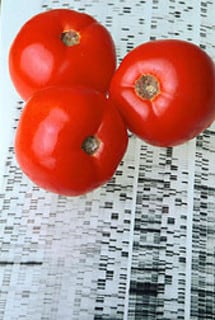The new data, published in PLoS One, investigated the short- and long-term effects of disclosing nutrition-related genetic information in a personalised dietary plan – applying nutrigenomic principles to help tailor dietary recommendations results in people making bigger changes to their food and drink intakes than when given ‘generic’ healthy eating advice.
"We conducted the first randomised controlled trial to determine the impact of disclosing DNA-based dietary advice on eating habits," said research leader Professor Ahmed El-Sohemy from the University of Toronto.
"We found that people who receive DNA-based advice improve their diet to a greater extent than those who receive the standard dietary advice. They're also the ones who need to change it the most."
José Ordovás, director of nutrition and genomics at Tufts University, who was not involved in the study, said that personalised dietary information not only increases compliance, but also supports the long-term health of patients.
"One of the major problems that we have found regarding one-size-fits-all dietary recommendations is people's adherence to them,” said Ordovás. "This work supports the notion that DNA-based recommendations can be more beneficial for the individual and, in addition, will increase his or her compliance, which will increase our ability of preventing chronic diseases using dietary approaches."
Study details
El-Sohemy and his colleagues collected data on the intake of caffeine, sodium, vitamin C and sugar from 138 healthy young adults who were then randomised into two different study groups -one was given DNA-based dietary advice for each of the four dietary components of interest, and the other group was given current standard dietary advice for the same dietary components with no genetic information.

Changes in the dietary habits of the participants were assessed after three and 12 months using food frequency surveys.
The team found subjects who received DNA-based dietary advice showed improvements to their diets after three months and the changes became even more apparent after 12 months.
Specifically, those who were informed that they carried a version of a gene linked to salt intake and high blood pressure significantly reduced their sodium intake, in accordance with the recommendation, compared to the group that received the standard advice for sodium intake, they revealed.
No effects were observed for the other components of the diet. However, most subjects were already meeting the dietary recommendations for the three other components at the start of the study, said the team – adding that this could explain why no significant changes were seen in these intakes.
“These findings demonstrate that disclosing genetic information for personalised nutrition results in greater changes in intake for some dietary components compared to general population-based dietary advice,” wrote the research team.
Source: PLoS One
Published online ahead of print, doi: 10.1371/journal.pone.0112665
“Disclosure of Genetic Information and Change in Dietary Intake: A Randomized Controlled Trial”
Authors: Daiva E. Nielsen, Ahmed El-Sohemy
